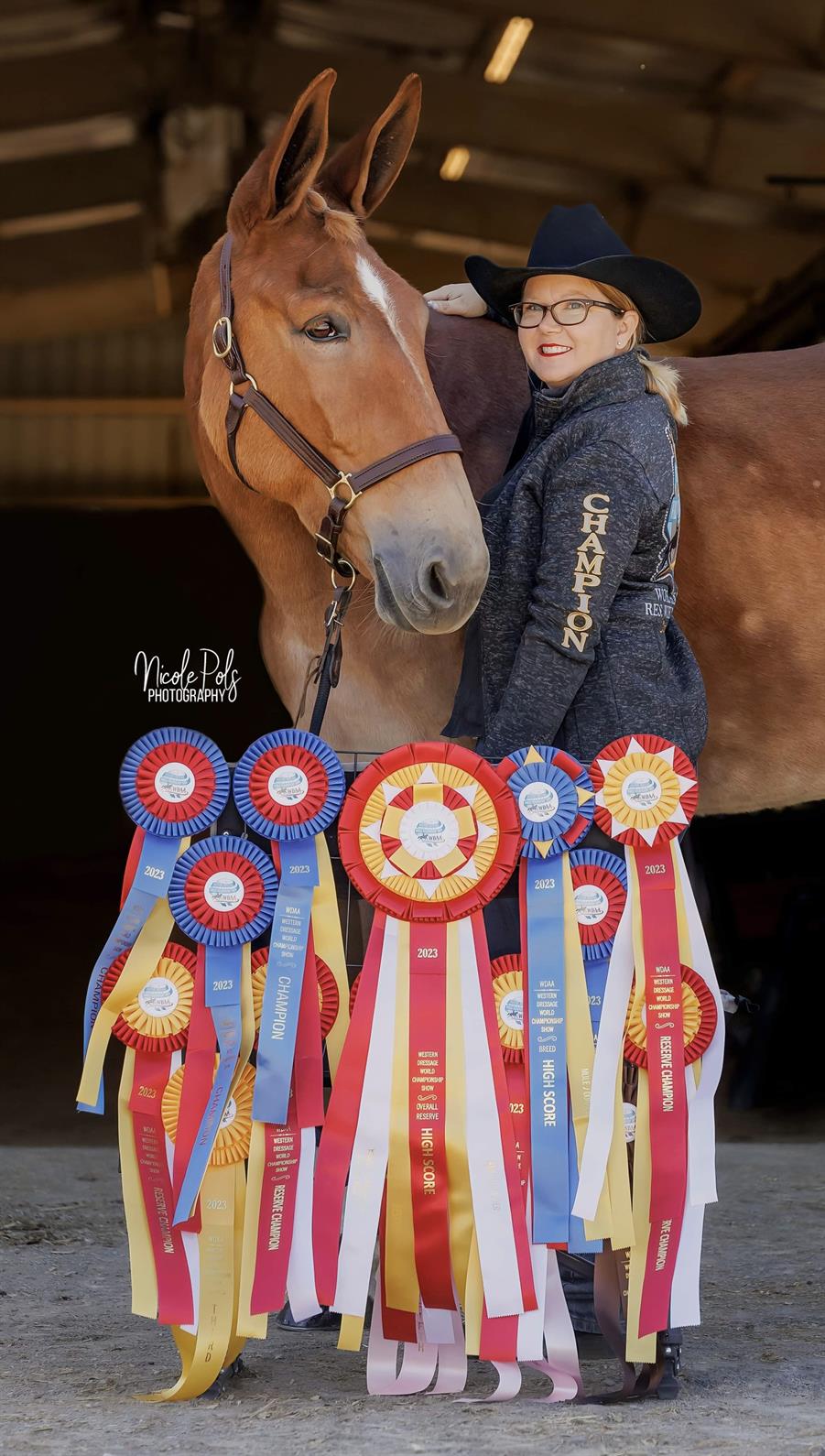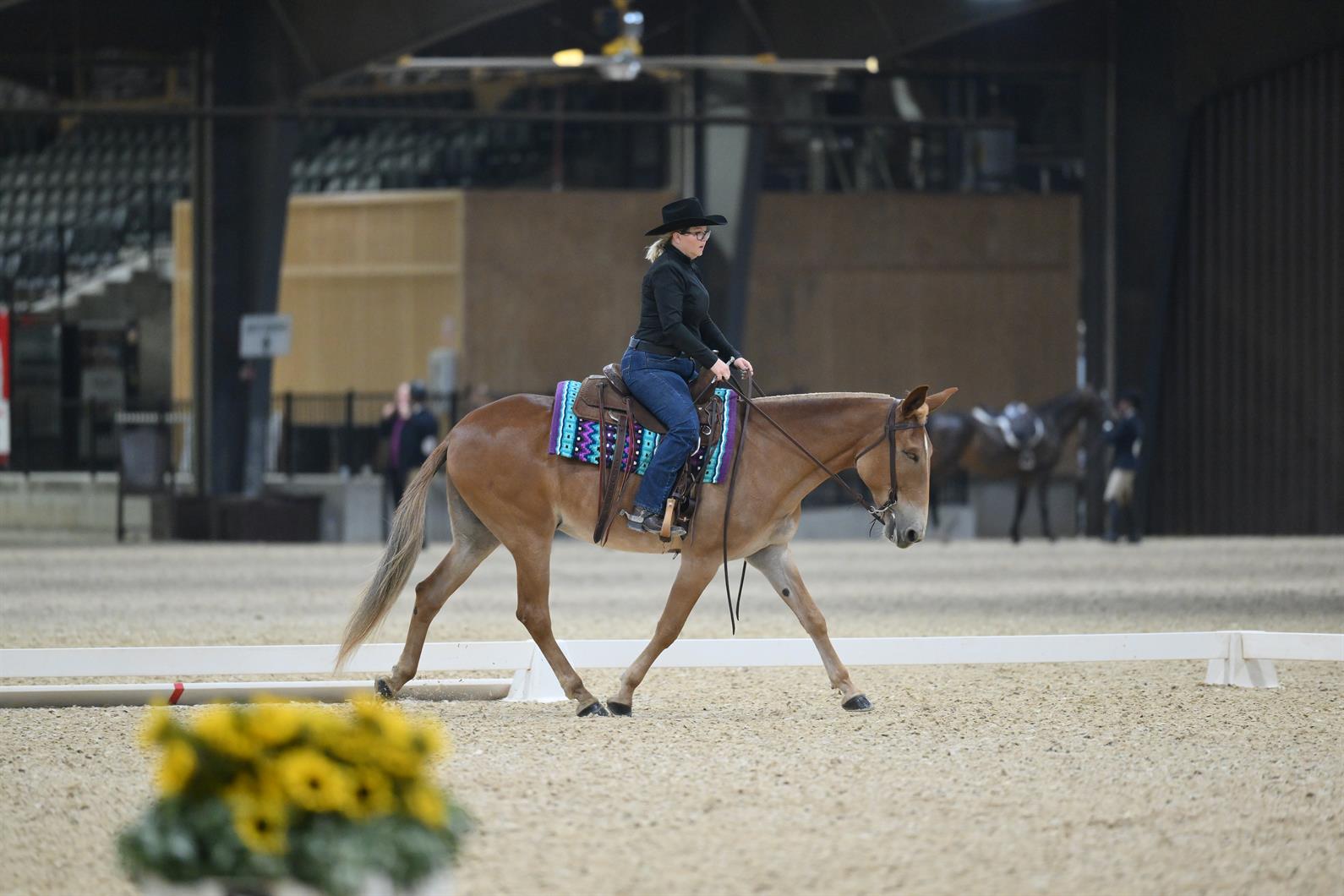
The Western dressage discipline is open to all breeds and types of equines, with its main focus being communication between horse and rider. One of these riders is Lauren Dutton, who competes in Western dressage with her mule Ooops See Daisy.
“I bought a Quarter Horse gelding and then needed a buddy because we bought a farm and had a lot of land, and that's how I got the mule. I bought her with the intent to be a pasture ornament, but I realized once I did start riding her that she was really a cool mover. That’s when I decided I wanted to show again!” Dutton said.
Dutton discovered Western dressage out of a desire to show “Daisy” in a way that best acknowledged her strengths and weaknesses. For example, despite her talent in movement, Daisy was initially unable to canter.
“I had no idea what to do with a mule. Where do you show a mule? I didn't know anything about them,” Dutton said. “I started doing some research, and I saw that the Western dressage group allowed anything. They allow mules and donkeys, horses and ponies, and every breed imaginable. I come from a Western background from the Quarter Horse world…I didn't know anything about dressage, but it was neat to see the progression and feel like I had a place to fit in, knowing that I only could walk and trot at first.”
When training Daisy, Dutton explained that she had to change her riding mentality and be more patient with her.
“I expected her to do what I said, which comes from the kind of horses that I've ridden all along…This mule was like, ‘Yeah, no. You have to ask me very nicely. We have to be really good friends first. I have to trust you.’ It took a really long time to build that relationship,” Dutton said. “They say [mules are] stubborn, but I really think they're smarter than humans. She's like, ‘If I just stand here, I'm too heavy. You can't push me. You can't make me get on the trailer. I'm just going to stand here until you prove that it's safe, or you're gonna be nice.’”
Dutton and Daisy recently competed in the World Championship Show for USEF’s Western dressage affiliate, the Western Dressage Association of America (WDAA), winning four World Championships and five Reserve World Championships. Her performance was posted on the USEF Network Facebook page, captioned, “Mules can dance too.” The post has over 87,000 views.
Dutton said that one of her favorite aspects of competing in Western dressage has been the diverse and welcoming community, explaining that she feels she has a place to fit in.

“You go to a show, and there's every breed imaginable. There are gaited horses, walking horses…they're welcoming to a mule. I've seen other people that have taken donkeys in the past,” Dutton said. “Everyone is so nice. They tell you good luck walking to your test. There's every size human, and any body type can ride. You can ride only in your back yard and still go to the world show, or you can spend all the money in the world on the fanciest tack and clothes. There's just every range, and everybody is super friendly and accepting.”
Dutton also explained that Western dressage has helped her maintain a positive attitude in the face of training-related challenges. Though working with Daisy is difficult at times, Dutton said her support system has led her to develop patience and understanding.
“They say in the Western world, it's all about the journey, and to just being able to be happy with small, tiny, progressive things has kind of been what I've taken away from it,” Dutton said. “It’s been a great experience. Following the training has allowed us to figure out the canter, and now we’re headed to the next level to work on more bend and start lateral moves. I am excited for the future!”
To learn more about Western dressage, visit the Western Dressage page in USEF’s learning center, or visit westerndressageassociation.org to learn more about the WDAA.


